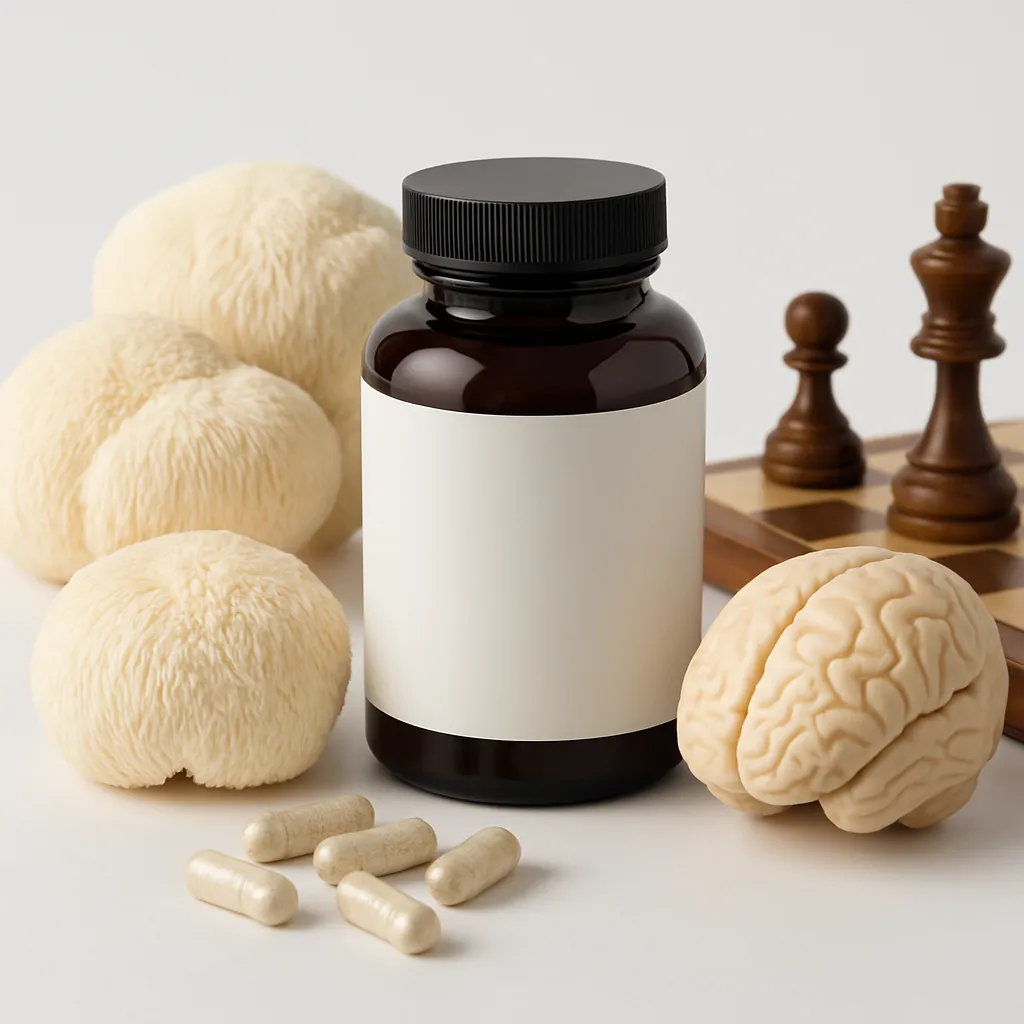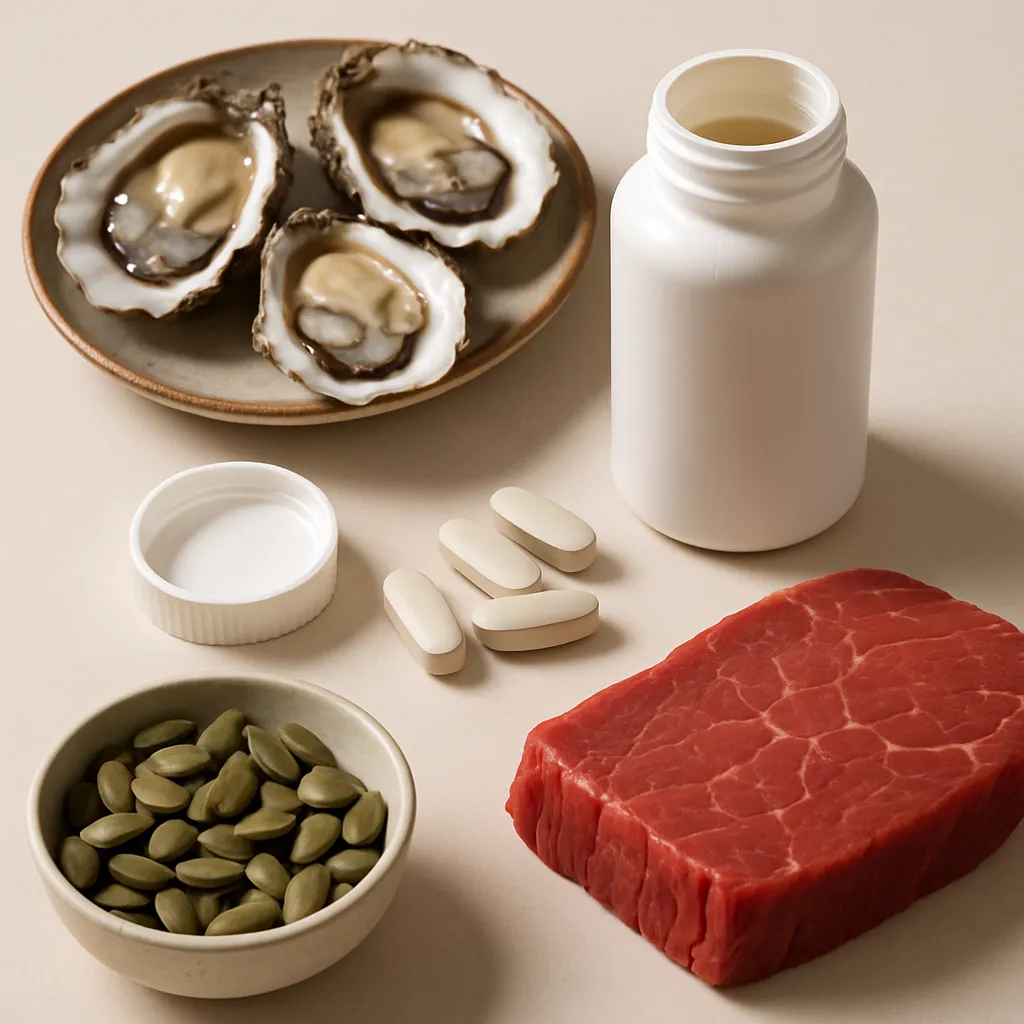NAC Unleashed: Comparing N-Acetyl Cysteine with Other Supplements

Introduction
Think of your body like a well-oiled sports car. To function at its optimum level, it needs regular maintenance and the right kind of fuel. That's where supplements come in. They are like high-performance fuel boosters, each with its own strengths and potential drawbacks. In this post, we'll be putting N-Acetyl Cysteine (NAC) in the hot seat and comparing it with other popular supplements - Vitamin C, Coenzyme Q10, and Melatonin. Get ready for a nutritional Grand Prix!
What is NAC (N-Acetyl Cysteine)?
NAC is the pit stop mechanic of your body's racing team - it helps repair damage and keeps things running smoothly. The key active ingredient is a powerful antioxidant and detoxifier known as L-cysteine[1]. It's typically dosed at 600-1800mg daily, depending on the specific use case, and is renowned for its role in replenishing the body's glutathione levels, a vital component in the body's defense system[2].
Key Alternatives to NAC (N-Acetyl Cysteine)
Let's introduce NAC's competitors: Vitamin C, the immune system's cheerleader; Coenzyme Q10, the energy booster; and Melatonin, the sleep regulator.
Vitamin C, also known as ascorbic acid, is a potent antioxidant that supports immune function and aids in collagen production[3]. It's typically dosed at 75-2000mg per day. Coenzyme Q10, on the other hand, is a nutrient involved in energy production and heart health[4], usually dosed at 100-200mg/day. Lastly, we have Melatonin, a hormone that regulates sleep-wake cycles, typically dosed at 0.5-10mg before bedtime[5].
Detailed Comparison
Here's a quick pit-stop overview of how these supplements stack up against each other:
| Supplement | Key Active Ingredients | Typical Dosage | Cost | Benefits | Potential Side Effects | Speed of Results | Scientific Evidence Strength |
|---|---|---|---|---|---|---|---|
| NAC | L-cysteine | 600-1800mg/day | Medium | Boosts glutathione, supports respiratory health | Nausea, diarrhea | 1-3 weeks | Moderate |
| Vitamin C | Ascorbic acid | 75-2000mg/day | Low | Immune support, collagen production | Diarrhea, nausea | Immediate to a few days | Strong |
| Coenzyme Q10 | Ubiquinone | 100-200mg/day | High | Energy production, heart health | Mild stomach upset | 2-3 weeks | Moderate |
| Melatonin | Melatonin | 0.5-10mg before bed | Medium | Sleep regulation | Morning grogginess, vivid dreams | Immediate | Moderate |
When to Choose NAC (N-Acetyl Cysteine) vs. Alternatives
If your body's sports car is dealing with oxidative stress or needs glutathione replenishment, NAC is your go-to mechanic. Vitamin C, however, is a great all-rounder for immune support and skin health. If you're dealing with energy or heart issues, Coenzyme Q10 might help, while Melatonin is the top choice for sleep disturbances.
Cost-Benefit Analysis
While Coenzyme Q10 is the priciest, it is essential for energy production and heart health. NAC and Melatonin are moderately priced but offer targeted benefits. Vitamin C is a cost-effective, versatile supplement that benefits many bodily functions.
Practical Recommendations
Consult with a healthcare provider before starting any new supplement regimen. Remember, these supplements are not a replacement for a balanced diet and adequate sleep. They're the turbo boosters, not the main engine.
Conclusion
Choosing the right supplement is like tuning your sports car for the big race - it's all about finding the right balance that suits your unique needs. Whether it's NAC, Vitamin C, Coenzyme Q10, or Melatonin, each has its pit lane in your body's Grand Prix.
References
[1]: Rushworth, G. F., & Megson, I. L. (2014). Existing and potential therapeutic uses for N-acetylcysteine: The need for conversion to intracellular glutathione for antioxidant benefits. Pharmacology & Therapeutics. DOI: https://doi.org/10.1016/j.pharmthera.2013.09.006
[2]: Mokhtari, V., Afsharian, P., Shahhoseini, M., Kalantar, S. M., & Moini, A. (2017). A Review on Various Uses of N-Acetyl Cysteine. Cell Journal (Yakhteh). PubMed: https://pubmed.ncbi.nlm.nih.gov/27920835/
[3]: Carr, A. C., & Maggini, S. (2017). Vitamin C and Immune Function. Nutrients. DOI: https://doi.org/10.3390/nu9111211
[4]: Hernández-Camacho, J. D., Bernier, M., López-Lluch, G., & Navas, P. (2018). Coenzyme Q10 Supplementation in Aging and Disease. Frontiers in Physiology. DOI: https://doi.org/10.3389/fphys.2018.00044
[5]: Xie, Z., Chen, F., Li, W. A., Geng, X., Li, C., Meng, X., Feng, Y., Liu, W., & Yu, F. (2017). A review of sleep disorders and melatonin. Neurological Research. DOI: https://doi.org/10.1080/01616412.2017.1315864
Disclaimer: This blog post is for informational purposes only and does not constitute medical advice. Always consult with a healthcare professional before starting any new supplement regimen.
Disclaimer: This article is AI-generated for educational purposes only and is not a substitute for professional medical advice. Always consult with a healthcare provider before starting any supplement regimen.
Explore More Resources
Disclaimer: This article is AI-generated and for informational purposes only. While we strive for accuracy, the content may contain errors or omissions.
The information provided is not medical advice. Always consult with healthcare professionals before starting any supplement regimen or making changes to your health routine.
Important: The information provided in this article about supplements is for educational purposes only. It is not intended to diagnose, treat, cure, or prevent any disease.
FDA Disclaimer: These statements have not been evaluated by the Food and Drug Administration. Supplements are not intended to diagnose, treat, cure, or prevent any disease.
Related Articles

Unlocking Value: A Cost-Benefit Analysis of Lion's Mane Mushroom
Explore the health benefits and cost efficiency of Lion's Mane Mushroom. Gain insights on this superfood's value in your daily diet. Click to learn more!

Unlocking Zinc Power: Your Essential Guide to Dosage Guidelines
Discover the power of Zinc in boosting your health. Explore dosage guidelines, benefits, and why it's essential for your body in our comprehensive guide.

Unlocking Resveratrol: Your Complete Guide to Dosage Rules
Discover the power of Resveratrol! Dive into our guide to understand dosage rules, benefits, and more. Unlock your health potential today!